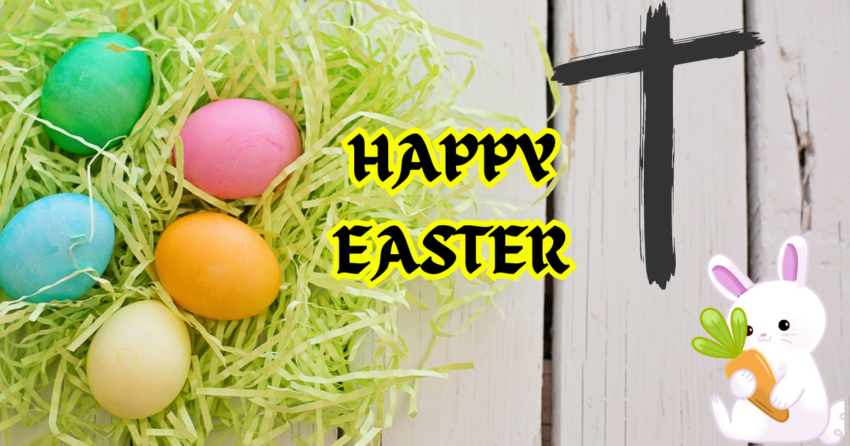Every year, Christians around the world celebrate Easter, a joyous holiday filled with egg hunts, delicious food, and family gatherings.
But have you ever wondered, what day is Easter exactly? Unlike holidays with fixed dates like Christmas, Easter’s date changes every year.
This blog post will delve into the fascinating history of Easter, how the date is determined, and the many ways people celebrate this special holiday.
A Journey Through Time: The History of Easter
Easter’s origins stretch back centuries, predating Christianity. Ancient cultures celebrated springtime festivals that marked rebirth and renewal.
Early Christians adopted these traditions and imbued them with new meaning. Easter commemorates the resurrection of Jesus Christ, a pivotal event in the Christian faith.
The word “Easter” itself has uncertain origins, possibly linked to the pagan goddess Eostre, who symbolized fertility and spring.
Over time, Easter evolved into a central holiday in Christianity, commemorating the belief that Jesus rose from the dead three days after his crucifixion.
Calculating the Easter Date
Determining what day Easter falls on each year involves a surprisingly complex formula. It depends on the lunar cycle and the position of the sun.
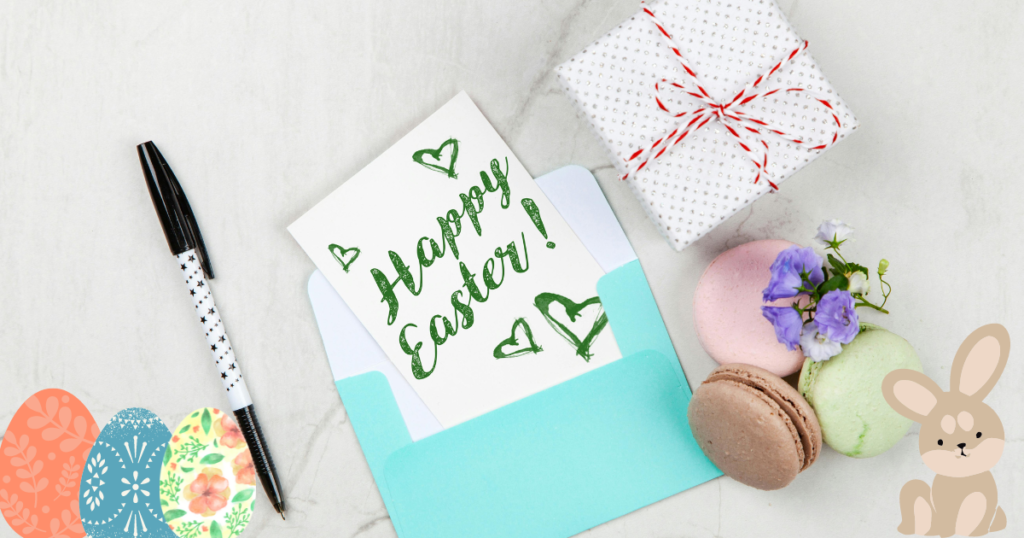
In simple terms, Easter Sunday is always the first Sunday after the first full moon following the spring equinox (the day with equal hours of sunlight and darkness).
This intricate calculation ensures Easter falls within a specific timeframe, typically between March 22nd and April 25th.
Easter Traditions: A Global Celebration
Easter traditions vary greatly across the globe, reflecting unique cultural customs. Here’s a glimpse into some popular practices:
1- Egg Decorating and Hunting:
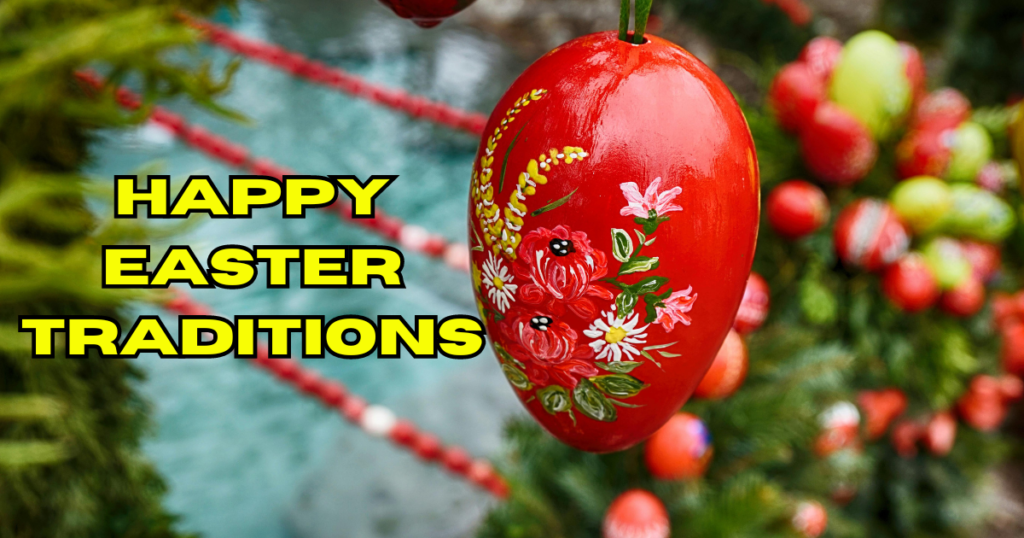
Decorating eggs is a beloved tradition, symbolizing new life and resurrection. Children eagerly search for hidden eggs, adding a playful element to the holiday.
2- Feasts and Special Meals:
Easter often features grand feasts with symbolic foods. Lamb roasts represent the sacrificial lamb, while decorated breads signify Christ’s body.
3- Sunrise Services:
Many Christians attend special church services held at sunrise, commemorating Jesus’ resurrection with the rising sun.
4- Parades and Processions:
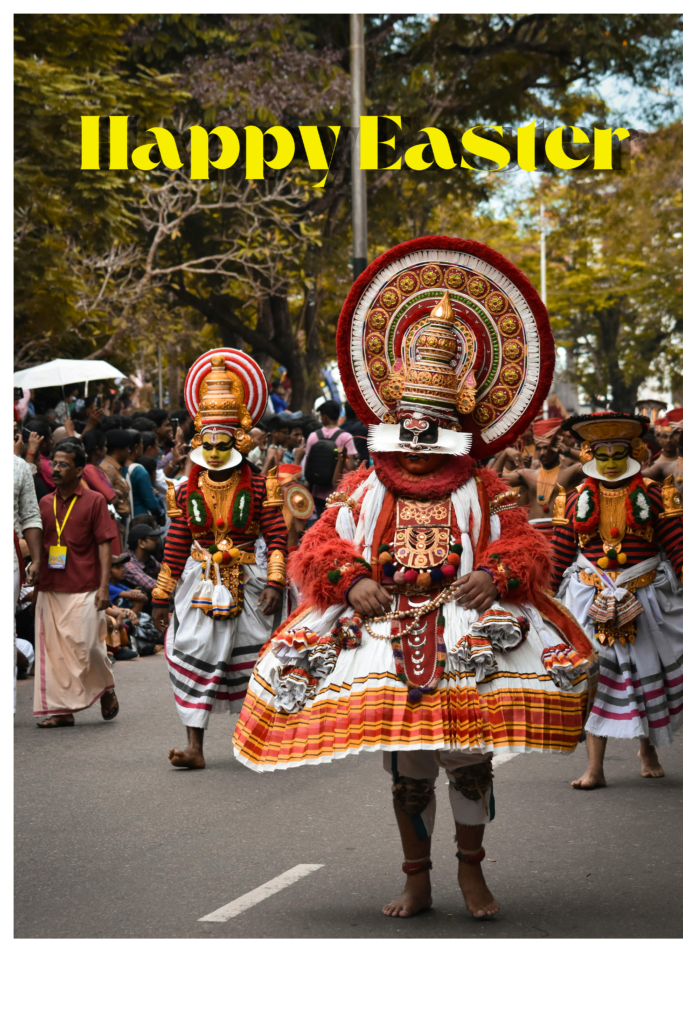
Vibrant parades and processions with colorful costumes and music are common in some countries, adding a festive touch to the celebrations.
The Religious Significance of Easter
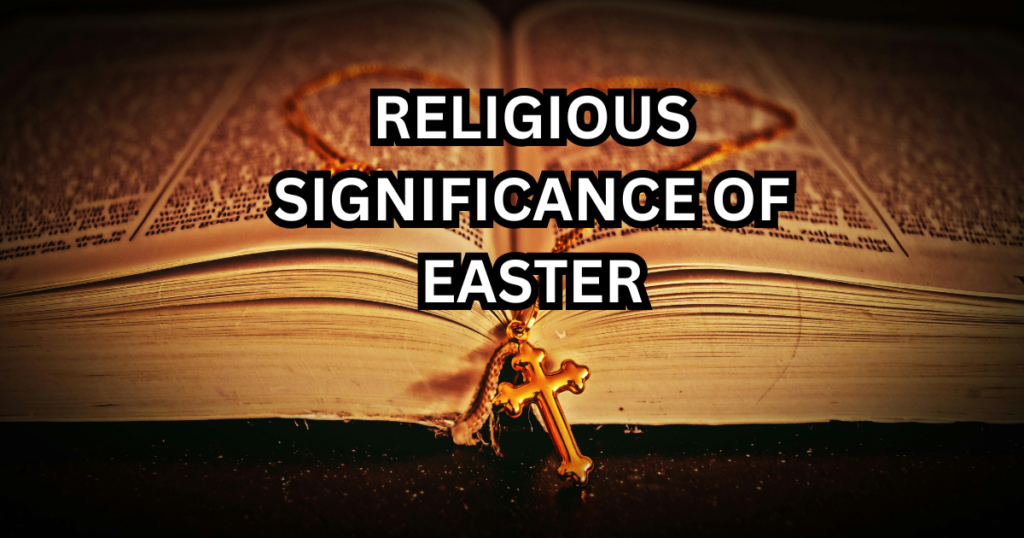
For Christians, Easter holds immense religious significance. It celebrates the core belief in Jesus’ death on the cross and his subsequent resurrection, signifying triumph over death and the promise of eternal life.
Easter Around the World: A Tapestry of Cultures
Easter celebrations showcase the rich tapestry of cultures around the world.
- Italy: In Italy, a large dove-shaped cake called Colomba Pasquale is a traditional Easter treat.
- Greece: Greece celebrates Easter by cracking red-dyed eggs against each other, symbolizing the blood of Christ and the strength of faith.
- Germany: Children in Germany build bonfires on Easter Saturday, representing the burning away of winter and welcoming spring.
- United States: In the United States, Easter egg hunts and delicious meals featuring ham, potato salad, and colorful candies are popular traditions.
Modern Easter Celebrations: Keeping Traditions Alive

Today, Easter celebrations incorporate both religious and secular aspects. Many families attend church services, followed by gatherings with loved ones. Egg hunts, gift-giving, and playful activities keep the spirit of Easter alive for younger generations.
Symbols of Hope and Renewal: Easter Eggs and Bunnies
Easter is adorned with unique symbols that hold deeper meanings. Eggs symbolize new life and resurrection, while bunnies represent fertility and springtime.
These symbols add a layer of charm and tradition to the Easter festivities.
Conclusion: A Season of Joy and Reflection
Easter is more than just a date on the calendar; it’s a season of joy, renewal, and reflection. Whether you celebrate its religious significance or enjoy the festive traditions, Easter offers a chance to connect with loved ones, appreciate the beauty of spring, and embrace hope for the future.
So, next time you wonder what day is Easter, remember that it’s a time to celebrate life, faith, and the promise of new beginnings.
Happy Easter!
